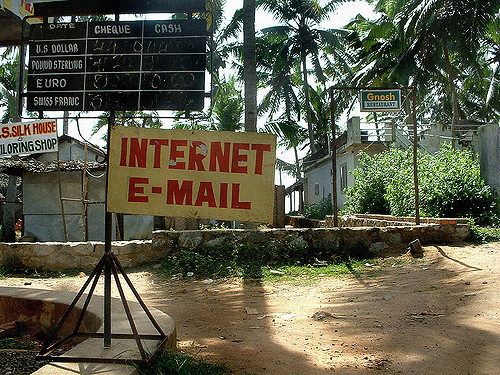The reality of email: can’t live with it, can’t live without it. Of all the technologies that have made their way into our personal and professional lives, I believe email can be one of the most distracting and time intensive. While email provides enormous benefits for communicating quickly and cheaply, the amount of time required to manage and process email can be profoundly damaging. No one is getting tenure, promoted to a new position, or gets a raise because they are good with email. However, the reverse can absolutely be true. In today’s post, I want to share five strategies that can keep email from running your life.

Before discussing these strategies in detail, I want to address the elephant in the room.
Whenever I discuss ways to curb email, many people just immediately assume this isn’t possible.
To be sure, there are some positions that by the nature of the job requires constant email work. However, I suspect that the vast majority of you reading this will not fall into this category.
I want to argue that if you have an email problem that it is time to look in the mirror.
Most of our bad habits with email are not because someone is making us, but rather because how we’ve structured our personal and professional lives in many ways around the desire (not the need) to manage email.
I believe in and have mostly implemented the strategies that I outline below. While I have not eliminated entirely the ability of email to distract me from what I need to get done each day, I have been able to dramatically scale back how much time and effort that I give to managing email.
Strategies to keep email from ruining your life
1. Turn off email notifications
Realistically, you should probably turn off almost all notifications, but especially email notifications. Email is rarely so time sensitive that you need to know the minute a message arrives. The research on memory and focus clearly demonstrates that the distraction of seeing an email notification even if you don’t stop to read the message can profoundly limit your cognitive abilities. Turn off those notifications and let email into your life at the time of your own choosing.
2. Read email on your own schedule
Now that you’ve turned off notifications, the next step is to decide when and how often you’re going to check your email. By only checking your email a few times a day (I prefer 3 times: morning, lunch, and at the end of the work day), you keep your email time confined and targeted. How many times have you started dealing with email only to look up to realize you’ve spent an hour or two? This can happen so easily and take up huge chunks of time. Instead, pick specific times and lengths of time that you will respond to messages.
3. Don’t use your inbox as your to do list
Often, one of the reasons people work in their email all day is that they use their email inbox as their to do list. I beg you, please don’t do this. There are wonderful to do list tools (including old fashioned pen and paper) and calendars to make your work. Email inboxes are incredibly ineffective at this. Moreover, by staying in your inbox, you allow other less important items to appear and distract you from your top priorities.
4. Avoid long emails and back and forth exchanges
Email is incredibly efficient at sending relatively short messages. Long emails and back and forth exchanges are highly inefficient. You can often spend far more time typing a message or multiple messages than just actually talking to someone. Complicated information, numerous questions, and other types of communication just don’t work very well on email. Instead, walk down to the hall, pick up the phone, or schedule a video chat to resolve an issue. It might seem like it will take longer to do this, but you’re dramatically underestimating the time to write the message as well as the distraction time involved in such messages.
5. Devise a system to find old email
We all need to find old email messages from time to time. You should figure out the system by which you will find your old emails. Some people prefer elaborate folder structures (something I tend to do) while others make extensive use of the search function. I don’t have a strong preference, but you need a way to find old emails quickly. Spending a long time to find a message or even worse having to ask someone to find a message for you (wasting your time and theirs) is not a solution.
Manage your email, don’t let it manage you
These 5 strategies can help you get a handle on your email, but a quick Google search will turn up dozens more. The fundamental point here is that you have to manage your email and be in charge of it. Don’t let email have the ability to determine what you work on or when you work on it. Only you can be responsible for making those decisions. Taking charge over email is the best way to keep email from running your life.

